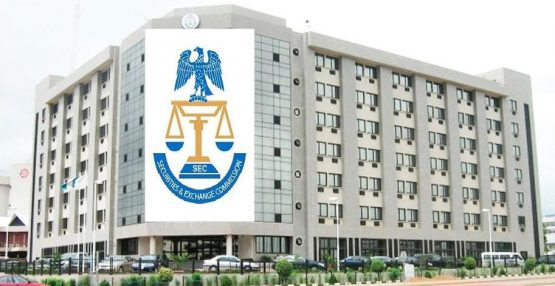Shareholders can now reclaim their unclaimed dividends within two days of providing their validated bank account to the company registrar.
The value of unclaimed dividend is estimated to be in the region of N100 billion.
In a major move to tackle the menace of unclaimed dividends headlong, Nigeria’s apex capital market regulator, Securities and Exchange Commission (SEC), is reviewing new rules and guidelines to make it easier for shareholders to mandate their accounts for automated, electronic-dividend payment, while blocking loopholes being exploited to create unnecessary delay in the account-mandating process.
Under the new rules, registrars “shall ensure that all mandated shareholder accounts are credited with all outstanding unclaimed dividends within two days”, while Bank Verification Number (BVN) shall be acceptable in replacement for banker’s confirmation of signature.
Accordingly, where BVN is provided, banker’s confirmation shall not be required before shareholders’ accounts are mandated by the registrars, thus avoiding unnecessary delay in mandating shareholders’ accounts.
Registrars are also expected to submit a quarterly report on all mandated shareholders’ accounts to SEC in order to enable the Commission monitor the level of compliance with the e-Dividend Mandate Management System (eDMMS).
At the last count, there were more than 2.55 million mandated accounts under the eDMMS. However, there have been several complaints of registrars not remitting the backlog of unclaimed dividends and in many instances, shareholders have to launch a new separate recovery process to reclaim previous payments.
The new rules and amendments, SEC said, are part of efforts to increase the rate of compliance by registrars, reduce the quantum of unclaimed dividends and avoid unnecessary delay in mandating shareholders’ accounts.
According to the rules, any registrar that violates the provisions of the new rules shall be liable to a penalty of not less than N1 million and an additional sum of N20, 000 for every day the violation persists.
SEC said it stipulates the penalty to serve as a deterrent to registrars who may possibly violate the rule.
Also, as part of efforts to ensure that shareholders and their heirs receive the benefit of their investments at the stock market, SEC is reviewing rules and regulations for the transfer of shares of a deceased person to the beneficiaries or administrators.
Under the new rules, registrar shall ensure that shares of a deceased are transmitted within three weeks of receiving the request from the administrators or executors. The executors or administrators shall however, provide letter of introduction from the administrators and executors, introducing themselves as the legal representatives of the estate. The letter should indicate the names, addresses, signatures and BVNs of the individual administrators and executors.
Also, administrators or executors shall provide original death certificate from the National Population Commission (NPC) for sighting, original probate letter or letter of administration for sighting or the certified true copy (CTC) from a Notary Public, copy of newspaper advert placed by the Court or Gazette, any evidence of ownership of the investment by the deceased such as the statement of shareholding from the Central Securities Clearing System (CSCS), original share certificates, dividend stub or dividend warrants or bank statement showing receipt of dividend into the account of the deceased.
Where the administrator or executor cannot provide the above requirements, the registrar may require confirmation through insurance, indemnity or interview.
SEC is also limiting the fees chargeable for transmission of shares by registrars to one per cent of the total value and additional five per cent Value Added Tax (VAT) for shares of N5million and below and 0.5 per cent of the value and five per cent VAT on shares above N5million with a maximum chargeable amount of N200,000, excluding VAT. Also, fees chargeable for confirmation of probate or letter of administration shall not exceed N12,000.
Sources in the know at the weekend said the new rules will be part of discussions at a crucial meeting of capital market regulators and operators this week. The Capital Market Committee (CMC) meeting, the first in 2019, is scheduled for Thursday in Lagos.
At the meeting, the CMC will consider reports from many of its technical committees and review the outlook for the Nigerian capital market in the light of emerging developments. During the meeting, issues bordering on implementation of the 10-year capital market master plan as well as others relating to the capital market and the economy would be discussed and the outcome made known to the media.
The CMC, chaired by SEC Director General, consists of chief executives of all registered capital market operators, including stockbrokers, solicitors, custodians, fund managers, issuing houses, rating agencies, registrars, reporting accountants, trustees and consultants among others. Other members include chief executives of the Chartered Institute of Stockbrokers (CIS); Nigerian Stock Exchange (NSE), Abuja Securities and Commodity Exchange (ASCE) and Central Securities Clearing System (CSCS).
The CMC also include two members each from observer groups, which include Asset Management Corporation of Nigeria (AMCON), Central Bank of Nigeria (CBN), Corporate Affairs Commission (CAC), Debt Management Office (DMO), Federal Ministry of Finance, Federal Mortgage Bank of Nigeria (FMBN), Federal Inland Revenue Service (FIRS), the Nigerian Deposit Insurance Corporation (NDIC), Investment and Securities Tribunal (IST), the Nigerian Investment Promotion Council (NIPC), National Insurance Commission (Naicom), National Pension Commission (Pencom) and FSS2020.












